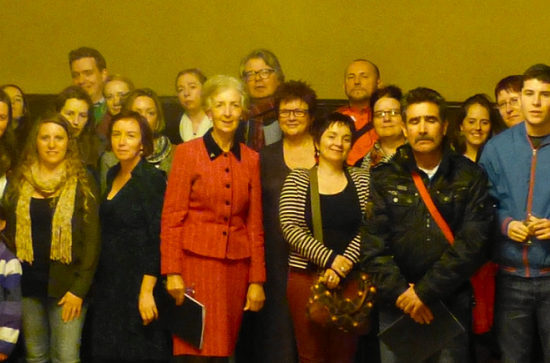
Leading international community development and human rights experts who met in Maynooth University in Thursday 14th November, have called for the protection of community development in Ireland.
As the Government proceeds with the most radical reforms to local government in over a century, leading national and international community development and human rights experts, meeting at the Maynooth University Annual Community Work Conference have highlighted the need to close the gap between rhetoric and reality in plans for community development.
Community development seeks to address poverty, social exclusion and inequality in and with the most disadvantaged and marginalised communities in the country. It places a specific emphasis on the participation and empowerment of those most excluded groups in our society. 160 participants from local and national organisations attended the conference, many of whom noted in feedback that community development is a critical tool that empowers and equips citizens to participate in decision-making. “As inequalities deepen, the need for communities to recognise their own power in creating positive social change becomes fundamental” a conference participant stated.
The language of community development is increasingly used in national and European policies and proposals. Yet, in Ireland this is being carried out in a process that is excluding marginalised communities and community development professionals.
Current Government plans for community development focus on individualistic citizen engagement at the expense of participatory and empowering collective processes, where communities come together to challenge poverty, social exclusion and inequality.
The Annual Conference, hosted by the Department of Applied Social Studies in association with the Community Workers Co-operative was opened by Anastasia Crickley, who noted that “if the Government’s proposals do not directly include disadvantaged groups, including women, they are by default excluded”.
Ms Crickley continued: “The Government’s proposals for ‘citizen engagement’ is only one element of a process which needs to be embedded within an overall community development approach. This approach must have a specific focus on margnialised and disadvantaged communities, not all of whom are even considered ‘citizens’ “.
As the crisis of austerity continues to affect the most vulnerable, projects working to empower marginalised and disadvantaged groups are being closed and workers redeployed to focus on individual cases of unemployment.
Commenting on this worrying trend, Prof. Gary Craig of Durham University underscored that “community development is more important than ever at a time of financial crisis in enabling those most affected by the crisis – the poor and disadvantaged – to have a voice and protect themselves and their communities from further disadvantage. To cut the level of community development is sheer madness. These cuts will come back to haunt politicians”
Margaret Ledwith speaking on the day remarked that the discourse surrounding poverty and ‘the blaming of the poor for their own fate’ continues to be a significant challenge to overcome. Community development provides a powerful approach by which to combat this challenge.
Other international experts speaking on the day included Prof. Keith Popple.
FOR MORE INFORMATION, or to arrange interviews, contact:
Anastasia Crickly, Head of Department
+353 872985611
[email protected]
